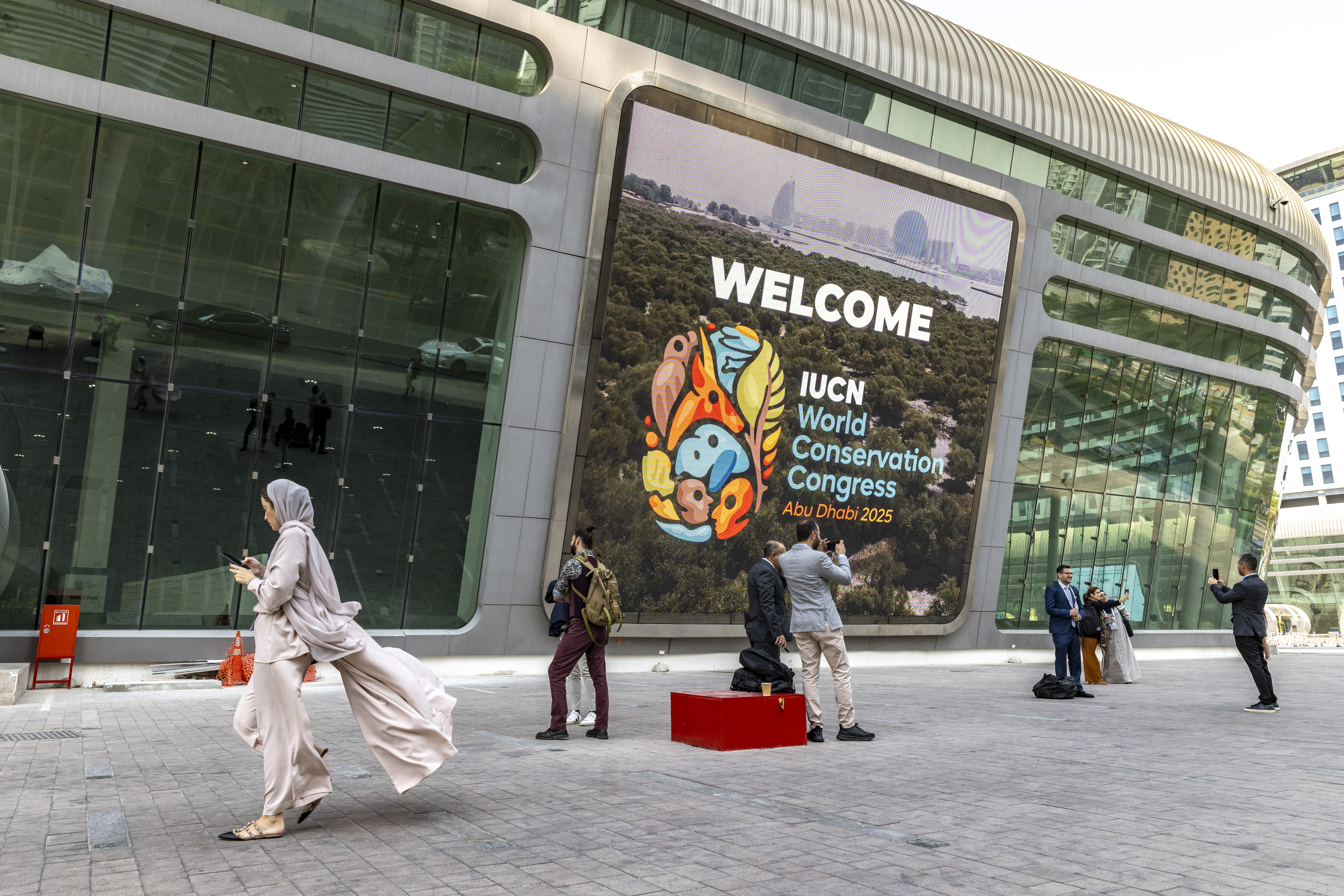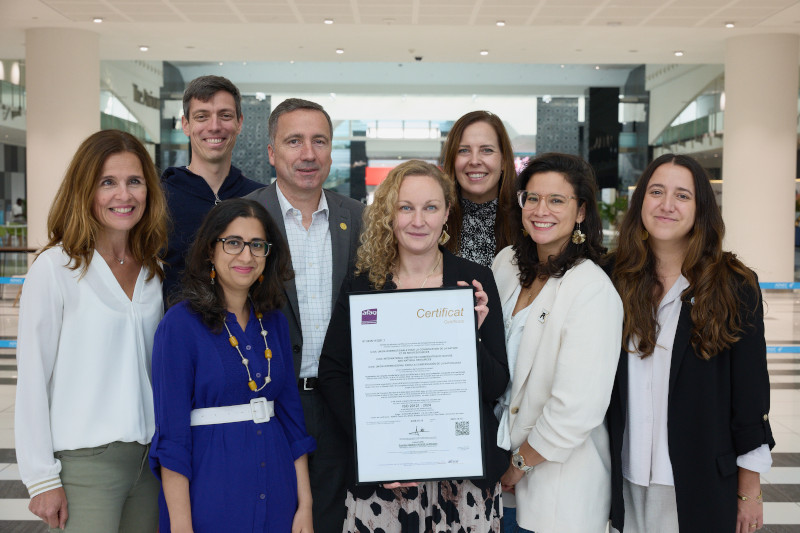The IUCN Congress has been certified compliant with the ISO 20121:2024 Standard, following an independent audit. Guided by the IUCN World Conservation Congress 2025 Sustainability Policy, IUCN has strived to ensure all aspects of Congress operations adhere to rigorous sustainability standards.
“Sustainability is at the heart of IUCN and its work, as demonstrated by the ISO 20121 certification of the World Conservation Congress 2025, hosted at the Abu Dhabi National Exhibition Centre. By embedding responsible practices across every aspect of the Congress, from energy use to waste reduction, we have set a benchmark for how global events can drive positive environmental and social impact,” said Dr Grethel Aguilar, IUCN Director General. “We are deeply proud of this certification – it has strengthened the Congress, transforming it into a living example of how sustainability can elevate purpose and performance alike. This achievement is thanks to IUCN’s dedication, the commitment of our partners, and the support of our Members. Together, we are showing that a more sustainable future is possible today.”
ISO 20121 is the global benchmark for sustainable event management, offering a framework that goes beyond checklists to embed sustainability as a core principle of successful event delivery. The standard helps organisers, suppliers, and venues ensure their events are environmentally responsible, socially inclusive, and economically viable.
In line with these requirements, IUCN has developed a comprehensive sustainability strategy and action plan, built on four key impact components:
- Economic and societal
- Environmental
- Social
- Governance
Each component includes specific objectives, actions, and Key Performance Indicators to track and report progress. Final results will be published in the Congress Sustainability Report, underscoring IUCN’s commitment to transparency and accountability to donors and Members.

The Abu Dhabi National Exhibition Centre (ADNEC), host venue of the Congress, also holds ISO 20121 certification. ADNEC is the first and largest event venue in the region to transition to zero-carbon clean energy. Food and beverage services will prioritise sustainability, with a local catering partner offering diverse, healthy, and culturally inclusive options that highlight low-impact, vegetarian and vegan choices. To address the UAE’s arid climate, innovative air-to-water technology provided accessible water on-site. As part of our broader ecosystem engagement, IUCN and ADNEC have partnered with ne’ma, the UAE’s National Food Loss and Waste Initiative, to ensure any surplus food is donated where possible. In addition, our collaboration with Reloop ensured that unavoidable food waste is collected, diverted from landfills, and transformed into compost.
“The UAE is honoured to host the IUCN World Conservation Congress 2025 and to share in this milestone achievement,” said Her Excellency Dr Shaikha Salem Al Dhaheri, Secretary General of Environment Agency Abu Dhabi (EAD). “Achieving ISO 20121:2024 certification is a testament of our partnership - demonstrating how sustainability can be embedded across every aspect of event planning and delivery. In line with IUCN’s four strategic pathways, the UAE is proud to support a Congress that strengthens environmental stewardship, drives inclusive social and economic opportunities, and promotes transparent, responsible governance. Together, we are showing that global convenings can leave a lasting legacy for nature and for people - one that advances both local action and global transformation.”
Achieving ISO 20121:2024 certification is a testament of our partnership - demonstrating how sustainability can be embedded across every aspect of event planning and delivery. In line with IUCN’s four strategic pathways, the UAE is proud to support a Congress that strengthens environmental stewardship, drives inclusive social and economic opportunities, and promotes transparent, responsible governance. Together, we are showing that global convenings can leave a lasting legacy for nature and for people - one that advances both local action and global transformation.”
Within the Exhibition, Forum, and Members’ Assembly, IUCN has prioritised the elimination of single-use plastic, polystyrene, and PVC. Delegates received reusable water bottles with access to conveniently located air-to-water refill stations. Signage is produced by choosing more sustainable materials with an emphasis on local sourcing, and a digital-first approach has been adopted – printing is only used where strictly necessary – to minimise paper use and reduce resource impact. Event infrastructure is designed to fully support virtual documentation, enhancing operational efficiency, digital accessibility, and inclusive participation throughout all phases of the Congress.
In addition to resource efficiency, the Congress has also addressed its carbon footprint. Event-related emissions have been carefully measured and reduced wherever possible, including those generated by participant travel and onsite activities. Unavoidable emissions are being offset through internationally certified projects, selected via a dedicated Call for Proposals open to IUCN Members and aligned with the IUCN Carbon Offsetting Policy. Through the online registration process, participants were invited to contribute to nature conservation by selecting from a curated list of certified carbon offset projects, ensuring that the overall impact of the Congress is responsibly managed and aligned with global climate goals.
To attain the certification, IUCN appointed GDS-Movement and Green Événements as technical sustainability advisors. AFNOR, the Association Française de Normalisation, which is France’s national standardisation body and a member of ISO, the International Organization for Standardization, conducted the independent audit and issued the certification.
This marks the third time IUCN has achieved ISO 20121 certification, following the IUCN World Conservation Congress 2016 in Hawaii, USA, and the 2021 edition in Marseille, France.
